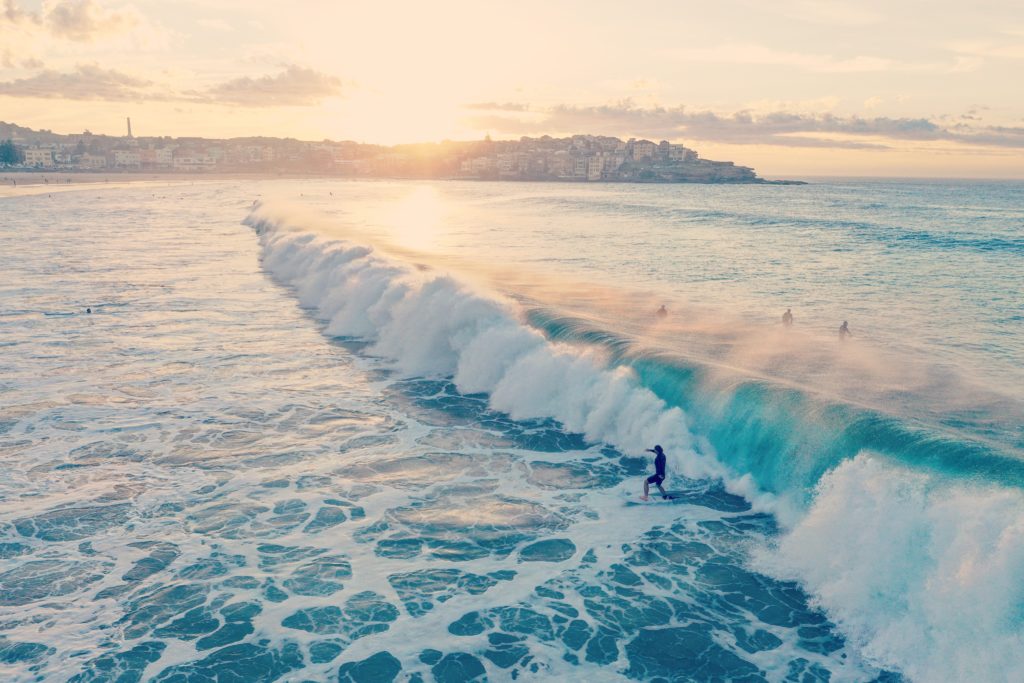If you’re back at work now after a local holiday, you might need some inspiration. We’ve splashed around the science stories we shared over summer to create a new quiz for y’all.

Results
#1. Atlas of Living Australia (ALA) has turned 10! How many biodiversity occurrence records have we collected over the past decade?
You can access more than 91 million biodiversity occurrence records through the Atlas of Living Australia. These records and data come from our partners across museums, natural history collections, herbaria, universities, government and the community. Join in the birthday celebrations.
#2. We all know the iconic Australian sound of cicadas screeching. Why do they make this sound?
Cicadas make a distinctive sound when they are finding a mate and avoiding predators. Hear what all the fuss is about.
#3. We're working with the National Landcare Program to produce interactive maps. What do the maps show?
Our interactive maps show vegetation cover and fire impact in Australia. This online tool provides time-series data on the vegetation and environmental conditions in Australia. You can use the interactive maps yourself.
#4. We launched a new medical chatbot called ‘Edna’, which is the first of its kind in Australia. How is it helping patients?
Edna (short for “electronic-DNA”) helps patients make informed decisions about their genomic testing. For example, it can reveal if someone has an above-average chance of developing a hereditary heart condition. Check out some of Edna’s other capabilities.
#5. Our helpful soil moisture detector, the Chameleon Card, lights up in three colours. Which ones?
Green, red and blue are the colours you will see on the Chameleon Card. This technology makes it possible for backyard green thumbs and the world’s most disadvantaged farmers alike to give their plants the right amount of water. If you dig this idea, there’s more to unearth.
#6. Illegal, unreported and unregulated fishing costs the world economy. What is the annual global economic cost?
Illegal, unreported and unregulated fishing costs economies up to US$50 billion globally each year. Tackling illegal fishing is not a straightforward problem.
#7. We've identified coastal and marine ‘bright spots'. What defines a 'bright spot'?
Marine ‘bright spots’ are areas where scientists have achieved the successful restoration of marine ecosystems. These environments have suffered damage from threats such as coastal development, overfishing or pollution. Take a dive into our ocean research.
#8. Plastics in our ocean are eaten by more than 700 species. We’re identifying ways to reduce marine deaths from plastic ingestion. How many tonnes of plastic enter the ocean each year?
About eight million tonnes of plastic enters the ocean each year. We’re identifying which specific plastic items harm the most animals.
#9. A larger than usual hole in the ozone layer was recorded in late-2020. But researchers predict a full recovery of the ozone hole. When is it predicted to occur?
We’re seeing an overall recovery trend in the Antarctic ozone hole. However, it’s a slow process. Researchers don’t expect a full recovery until around 2060-2070. We have a strong involvement in tracking the ozone hole.
#10. We’re finding ways to recycle wasted lithium ion batteries (LIB). How many tonnes of LIB go to waste annually in Australia?
More than 5300 tonnes of lithium ion battery waste is produced annually. And that number is growing. By 2036, it could exceed 600,000 tonnes each year. Discover how we’re reducing these numbers.
How did you go in the summer quiz?
Let us know in the comments below.





10th February 2021 at 8:53 pm
A great quiz
9th February 2021 at 8:53 am
very informative – got about half correct but it should have been more
6th February 2021 at 4:56 pm
Oops, only 50% correct. Some were guesses … mostly went for the biggest numbers – should have gone for more! Eye-opening!
5th February 2021 at 5:12 pm
Mad guesses all!
Sometimes I got it right.[well, maybe the bright spots round the coast were a educated guess!]
No one except you lot knows the exact figures for things and I just HOPED Edna might help people find the relevant specialist.